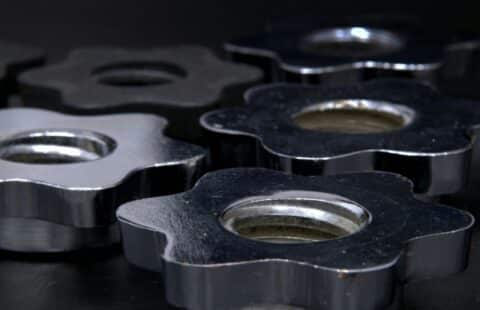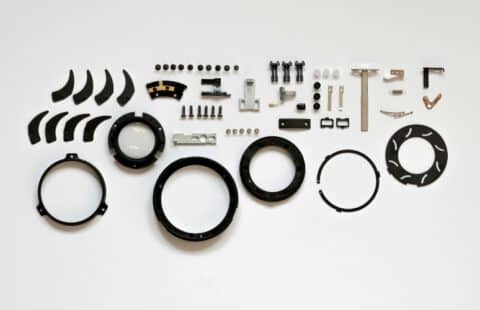
Choosing the Right Gear Materials for Building or Rebuilding Your Machinery
The choice of gear materials in industrial machinery can significantly impact performance, durability, and overall operational efficiency. Whether building new equipment or embarking on a rebuilding project, understanding the materials available for gears is crucial to ensuring your machinery meets your business’s demands.
Let’s explore the various types of materials commonly used for gears and their suitability under different operating conditions:
1. Steel Alloys: Strength and Versatility
Materials: Carbon steel, alloy steel (e.g., 4140, 4340), stainless steel.
Benefits: Steel alloys offer robust strength, excellent toughness, and high wear resistance, making them ideal for heavy-duty applications. Alloy steels provide enhanced hardness and durability and are suitable for high-load and high-speed operations in manufacturing, mining, and construction industries.
2. Cast Iron: Stability and Damping Properties
Materials: Gray cast iron, ductile cast iron (nodular iron).
Benefits: Cast iron gears are known for their superior damping properties, which reduce noise and vibration during operation. They offer good wear resistance and are suitable for applications where smooth, quiet operation is essential, such as in pumps, compressors, and automotive transmissions.
3. Brass and Bronze: Corrosion Resistance and Machinability
Materials: Brass (copper-zinc alloy), bronze (copper-tin alloy).
Benefits: Brass and bronze gears provide excellent corrosion resistance and low friction characteristics. They are easy to machine and offer good wear properties, making them suitable for marine environments, musical instruments, and applications requiring self-lubricating properties.
4. Plastics and Polymers: Lightweight and Quiet Operation
Materials: Nylon, acetal (Delrin), polyethylene, polyurethane.
Benefits: Plastic gears are lightweight, corrosion-resistant, and operate quietly, making them suitable for applications where noise reduction is crucial, such as in consumer electronics, medical devices, and food processing equipment. High-performance polymers like PEEK offer superior strength and heat resistance, which is ideal for demanding industrial environments.
5. Exotic Alloys and Composites: High Performance and Specialized Applications
Materials: Titanium alloys, aluminum alloys, carbon fiber reinforced polymers.
Benefits: Exotic alloys and composites offer unique advantages such as lightweight design, high strength-to-weight ratio, and corrosion resistance. They are used in aerospace, automotive racing, and high-performance machinery, where reducing weight and maintaining durability are critical.
Choosing the Right Material for Your Machinery:
- Evaluate Operational Requirements: Consider factors such as load capacity, operating speed, environmental conditions, and required lifespan of the machinery.
- Cost and Manufacturing Considerations: Balance material costs with manufacturing capabilities and ease of fabrication.
- Consult with Experts: Work with gearbox rebuilding and manufacturing specialists to determine the best material for your application and performance requirements.
By selecting the appropriate gear materials based on your operational needs and environmental conditions, you can ensure that your machinery performs reliably, efficiently, and durably.
Whether constructing new equipment or revitalizing existing machinery through rebuilding projects, making informed decisions about gear materials is critical to achieving long-term success in your business operations. MayDay is here to help.


